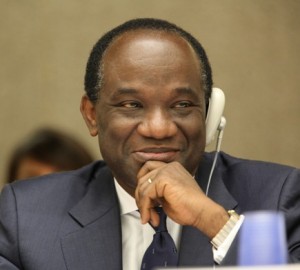Scientists urged to deepen engagement with policy makers to enhance investments

Dr Anarfi Asamoa-Baah, the Presidential Advisor on COVID-19, has advised scientists to create innovative ways of deepening engagement with policy makers and the media for investment and appreciation of the importance of research.
He said meaningful engagement right from the beginning and in every step of the way throughout the process would create a sense of ownership and enable the policy makers to appreciate the work done.
Dr Asamoa-Baah said: “It is through these engagements that we would be able to mobilise the resources needed to support research in the country and Africa,” Dr Asamoa-Baah added.
He said the media played a crucial role in educating people with scientific information given the level of science and health literacy in the world and urged scientists not to leave them out in the engagement process.
The Presidential Advisor said this at the opening ceremony of the Sixth Annual Research Conference organised by the West African Center for Cell Biology Infectious Pathogens (WACCBIP) to enhance excellent scientific research.
It was on the theme: “Building Forward: Elevating African Research Innovation and Output.”
The three-day event is aimed at creating a platform for young researchers to share their research ideas and output with the goal of elevating African research and innovation.
It also seeks to elevate African research through African institutions and initiatives focusing on diseases and conditions that were very specific to African scientists and have national importance in the global landscape.
Professor Nadia Sam-Agudu, a Senior Technical Advisor, Pediatric and Adolescent HIV at the Institute of Human Virology Nigeria, in delivering a lecture on ‘Building Sustainable Research Partnerships and Productivity in West Africa and Central Africa’ emphasised the importance of collaborative research.
She said to drive equitable partnerships, productivity, and sustainability, there was the need for funding, power and decision making, sharing of opportunities and benefits.
Professor Gordon Awandare, Director of WACCBIP, urged Ghana to leverage its own indigenous financing sources and valued products, such as graduates with the potential to do research and development locally to assist address issues important to the nation.
He said for example majority of WACCBIP findings were utilised in some of the policies implemented to control the spread of the infection during the COVID-19 pandemic, stating that money should be spent where most effective.
He said investment in research development and innovation in Africa was extremely low, which was why researchers secured funding from outside and urged government to prioritise the sector for more growth.
Prof Awandare lauded WACCBIP for not only doing research but also training more than 300 young scientists throughout the continent for master’s, PhD, and post-doctoral degrees to assist improve the knowledge and technical ability of Africans. The event also saw the launch of the upgraded WACCBIP website.
WACCBIP, established in 2014, seeks to improve the diagnosis, prevention, and control of tropical diseases in sub-Saharan Africa by providing advanced-level training and research excellence in cell and molecular biology.
Source: GNA
